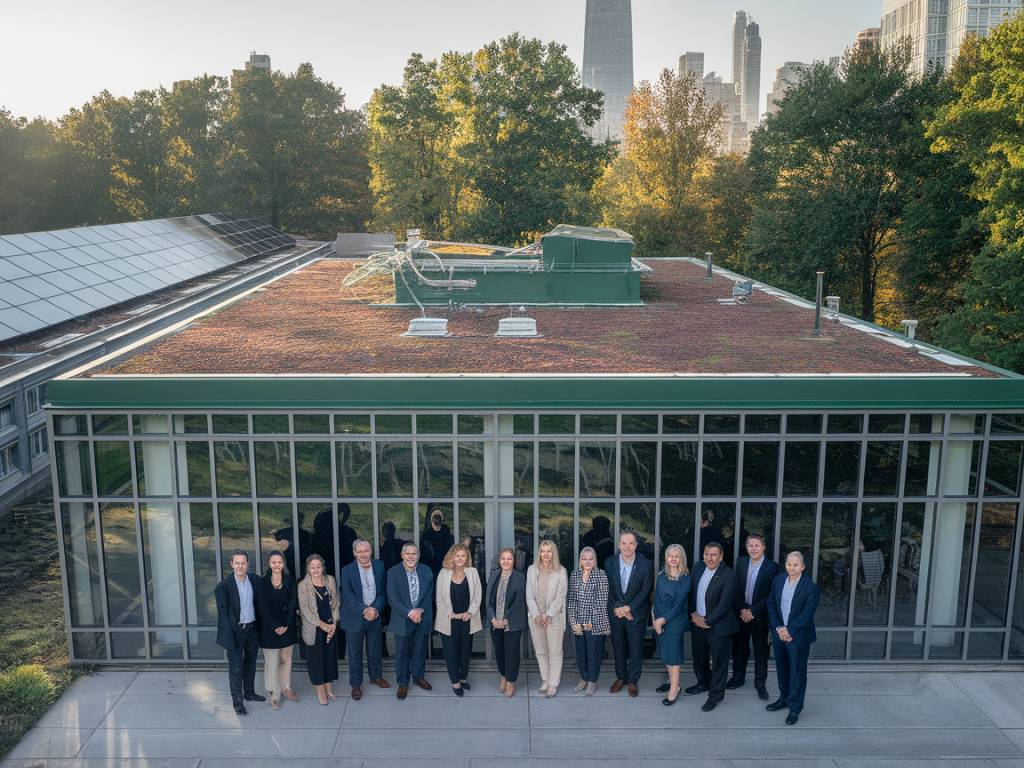Green Disruption: How Startups Are Rewriting the Rules of Climate Innovation
The climate crisis isn’t waiting — and neither are startups. In a world where traditional industries often lag behind due to bureaucracy or fossil-fuel dependency, climate-focused startups are emerging as agile, daring, and disruptive players in the race to a more sustainable future.
But what exactly makes a startup “climate-focused”? At their core, these are young companies leveraging innovation — whether through cutting-edge technology, circular business models, or social enterprise — to directly address carbon emissions, resource depletion, and the broader ecological crisis. With their risk-taking mindset and fresh thinking, they are often better positioned than incumbents to test bold new solutions.
From lab-grown leather to algae fuel, let’s explore how climate-focused startups are accelerating green innovation — and rewriting the playbook for our transition toward a livable planet.
Why Startups Matter in the Climate Arena
Let’s face it: systemic change is complex. Top-down reforms and global agreements are crucial, but they move at a glacial pace. Startups, on the other hand, operate with a very different set of rules: more speed, more agility, and often, more ambition.
They’re not just talking about change — they’re prototyping it. In a recent report by PwC, climate-tech startups attracted over $60 billion in venture capital between 2013 and 2021. This rapid growth is being driven by a new generation of entrepreneurs who aren’t waiting for permission to rethink how we build, move, grow food, and consume energy.
Plus, they often act as catalysts for larger systems. The innovations they test — whether successful or not — often get adopted, scaled, or improved by larger corporations or public entities. Think of them as the R&D arm of the green revolution.
From Problem to Product: Where Startups Are Making Waves
Climate-focused startups are popping up across virtually every sector. Here are some of the most exciting areas where their presence is particularly transformative:
- Energy: Startups like Octopus Energy (UK) and SunCulture (Kenya) are not only making renewable energy more accessible — they’re reinventing how we produce, store, and distribute power. From AI-optimized grids to solar panels for rural farmers, innovation here runs deep.
- Food & Agriculture: Agri-tech innovators like Plenty and Infarm are reimagining how and where we grow food, while companies like Nature’s Fynd are developing fungi-based protein as alternatives to emissions-heavy meat production.
- Materials & Fashion: In ethical fashion, startups like MycoWorks and Bolt Threads are producing leather-like materials grown from mushrooms. It’s not sci-fi — it’s already landing in fashion houses like Hermès.
- Waste & Circular Economy: Circularity trailblazers like Loop, which works with major brands to offer reusable packaging, or Too Good To Go, which combats food waste, are chipping away at a staggering global waste problem.
- Mobility & Transportation: EV-focused startups including Rivian and micromobility companies such as Voi and Tier are changing how we move around cities, pushing for a future without gas-guzzling personal vehicles.
These are just a few snapshots of a broader ecosystem. What they all share is a willingness to see the climate crisis not only as a threat, but also as an opportunity for meaningful reinvention.
Funding the Future: The Rise of Climate Tech VC
Where ideas go, money follows. Venture capital interest in climate tech is booming, especially among mission-aligned funds. Funds like Breakthrough Energy Ventures (backed by Bill Gates) and Lowercarbon Capital are dedicated solely to climate solutions that can reasonably remove gigatons of CO₂.
The result? Startups now have greater access to capital than ever before — but with impact as a prerequisite. Investors are increasingly emphasizing measurable climate benefits alongside traditional ROI.
And it’s not just tech billionaires stepping in. Communities, municipalities, and even pension funds are starting to redirect investments towards green startups — recognizing that climate risk is deeply tied to financial stability in the long term.
Barriers on the Road to Scale
Of course, it’s not all smooth sailing. For many pioneering startups, the greatest challenge isn’t developing the product — it’s scaling it.
Hardware solutions (think solar panels, electric planes, direct air capture) face massive upfront costs and regulatory hurdles. Meanwhile, breakthrough ideas often require behavior change — and that’s never easy. You can’t just build an electric car-sharing platform and expect overnight success; you have to convince people to rethink car ownership entirely.
There’s also competition from greenwashing. Legacy companies are quick to slap on a “net-zero by 2050” label, which can drown out genuine innovation with shallow promises. For climate startups, credibility is currency. The ones that succeed build trust by letting data — not marketing — do the talking.
What Sets Climate Startups Apart?
Not every startup wants to be the next unicorn. Many climate-focused founders prioritize impact over valuation. Often led by engineers, scientists, or policy experts, these companies are driven by a mission larger than profit.
Take the example of Climeworks, a Swiss startup that’s developing direct air capture technology to remove CO₂ from the atmosphere. Is it scalable? Expensive? Yes — on both counts. But they’re already building large-scale systems and publishing transparent metrics on carbon removal effectiveness. That level of accountability is rare — and refreshing.
Others, like Charm Industrial, are testing unconventional solutions like converting biomass into carbon-rich oil and injecting it underground. It may sound bizarre, but it’s backed by rigorous science and bold experimentation — precisely what climate innovation demands.
These startups don’t just build products. They challenge narratives. They remind us that with enough creativity and courage, many “impossible” climate solutions might just be… prototypes away.
How Everyday Consumers Can Support Green Innovation
You don’t need to launch a climate startup to be part of this change. Every consumer decision influences which ideas gain traction — and which fade into silence.
Here’s how you can be part of the movement:
- Seek out alternatives: Try plant-based products by new food-tech brands. Choose secondhand or bio-based fashion over fast fashion.
- Support reusability: Use apps that promote local reuse or resale, such as Loop or Vinted.
- Invest consciously: If you’re in position to invest, even through green ETFs or ethical banks, consider where your money sleeps at night.
- Advocate locally: Suggest local governments or institutions support pilot programs by climate startups — from e-mobility solutions to low-carbon building materials.
Change happens bottom-up as much as it does at the policy level. Consumer curiosity — and willingness to try the unfamiliar — gives these startups the runway they need to fly.
What’s Next for Climate Startups?
If the last decade was about recognizing the scale of the climate crisis, the next will be about scaling the solutions. Climate-focused startups are positioned at the epicenter of this shift — not just as technology providers, but as cultural catalysts.
Will every climate startup succeed? Frankly, no. But the beauty of startup ecosystems is that their failures pave the way for better iterations. Every misstep is a lesson learned faster than in most incumbent models. That’s a feature, not a bug.
The climate clock is ticking — but what if the hope we’re searching for isn’t found in headline-grabbing pledges or distant promises, but in a small, crowded workshop where three engineers are building the next big idea for a cooler planet?
One thing is clear: if we’re serious about solving the climate crisis, we need to bet on fresh ideas — and the people brave enough to build them.




